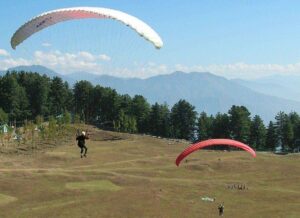Last Updated on September 15, 2020 at 5:24 pm
With the changing scenario in Jammu and Kashmir after the abrogation of Article 370, those involved in the business of sand mining are also feeling the heat.
Many people in the Union Territory make their livelihood from sand mining as they use to bring sand from the river beds and sell it to the consumers.
Since 2016 new laws were implemented that mandates that the government will hold an auction for the sale of plots not less than 5 hectares and for a period of five years. Earlier local miners used to rule the sector but with the abrogation of Article 370 that preserved special rights to locals of the state, now people from all over the country can come and bid for the mining plot which has resulted in an unprecedented increase in sand prices in Jammu and Kashmir.
The main problem which the people are facing is that since outsiders started selling sand to the consumers there has been an increasing rise in the black marketing of sand and other materials.
In Kashmir, the construction period starts in the month of March and ends in September, and then the construction sector remains closed for rest of the year. In that month the local traders sell the sand and other materials at a very high rate. One local trader said that the truck of sand which earlier used to cost us around thirty-five hundred has increased to six thousand rupees and this is all due to black marketing.
These transporters bring sand from the shore of river Jhelum in boats and they store the sand in their godowns. Then when the construction period comes they sell the sand at higher prices.
But the government denies that there is no such black marketing for minerals. They said that before 2016 there was illegal mining and transportation of minerals but after the government has brought the auction system under its control there have been no such activities. They added that the deputy commissioners have been asked to fix the rates of the minerals and almost half of the commissioners have already submitted their rate list to the office.
In June 2019, the government held the first auction but due to the internet connectivity problem, the auction was not that successful. To make the auction successful the government again held the auction in December 2019, but due to the internet being suspended in the Union Territory again the locals were unable to take part in the auction. Till date around 400 auctions were held by the government. And only one local has won the auction while most of the auctions have been won by people outside the union territory.
Local traders said that the government didn’t want the locals to take part in the mining bid. A local said that a Kashmiri trader would have paid more than the ‘outsider’. He also said that the outsider is selling the UT’s sand to UT’s locals at a higher rate.
Ahmed, a local contractor said that local traders choose land and bids together so that everyone is in benefit. But on the other hand, the government official declined the allegations. A government official who did not want to be named said that the local traders don’t want to bid for the lands. “They want the land to be given in their hands without any procedure at the comfort of their home” said the official.
He also said that the outside bidders are well organized and have more resources than the local traders. He said that the outsider traders are happy with the bidding procedures. He added that Jammu and Kashmir had been benefited from the opening of the sector as it has generated a large amount of revenue for the government of Union Territory.
Sources say that for locals the government has planned small lands for a small term to extract minerals from the land. This will also bring revenue from the sector.
On the other hand, the locals are unhappy with the government plans. The Jammu and Kashmir government has implemented the rules when the Chhattisgarh government has reserved the mining sector for its local traders.
Chhattisgarh government has come up with the rules that a person who is having domicile of the state is allowed to work in the mining sector. People argued that most of the states allow local traders to dominate the sector but the Jammu Kashmir Government has made it difficult for their local traders.
They said that we have to work with the outsider traders for our livelihood.
Now, between all these problems the question arises how will the government handle this problem of increasing price of sand in Jammu and Kashmir? Will the rights be given back to locals again like the neighboring states or government will implement any new law for its people?



